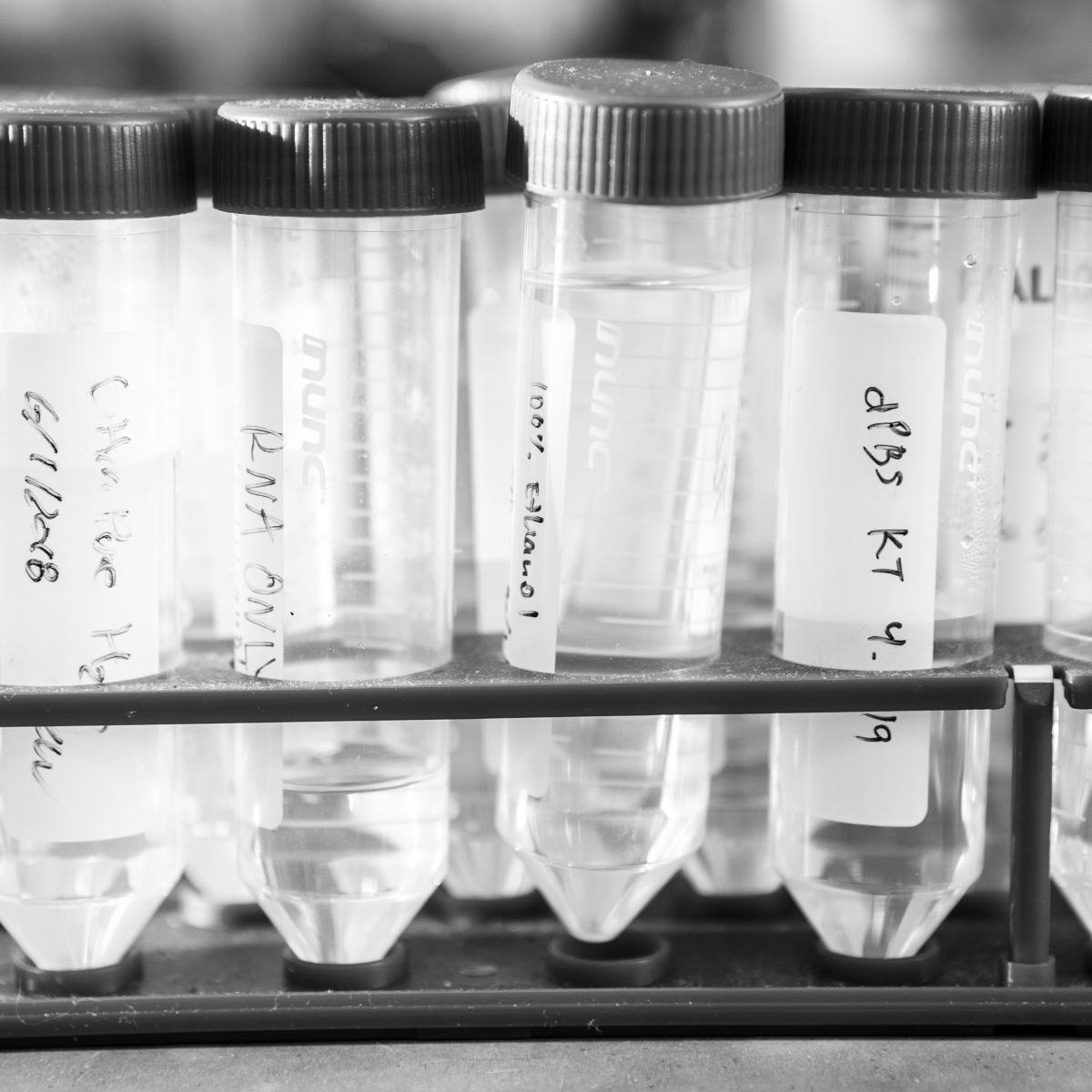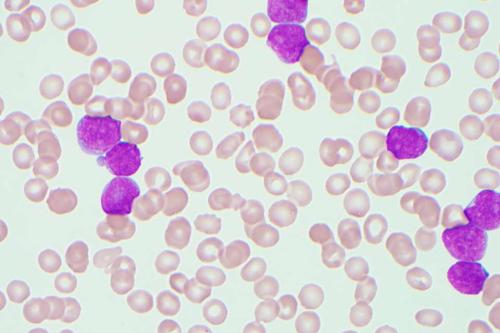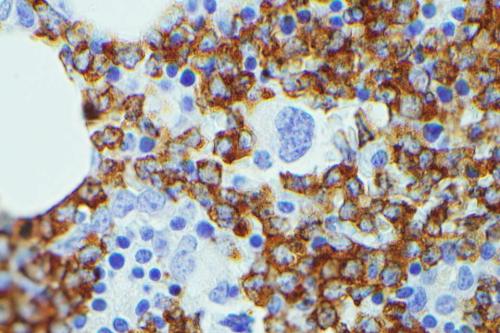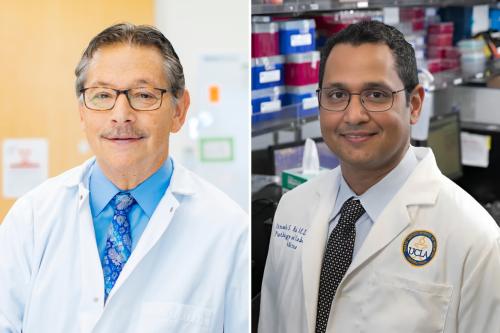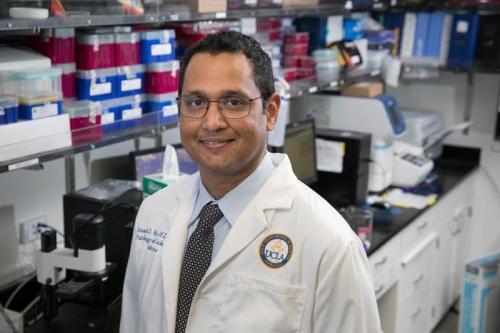
Dinesh S. Rao, M.D., Ph.D.
- Professor, Pathology and Laboratory Medicine

Dinesh S. Rao, M.D., Ph.D., treats patients with blood cancers, including leukemia and lymphoma, and studies the role of gene regulation in blood stem cell differentiation and cancer. His ultimate goal is to apply the insights gained from his research to develop new diagnostic tools and therapies for patients with these conditions.
A physician-scientist, Rao investigates the molecular underpinnings of cancer and the processes that disrupt the normal differentiation of blood stem cells, which create all the cell types that make up the blood and immune system. He is particularly interested in the mechanisms of gene regulation, and how microRNAs and other non-coding RNAs regulate blood stem cell development and cancer formation.
Rao’s early studies focused on obtaining insights into disease directly from patient biopsy material. By generating detailed scientific analyses of potential targets initially identified in patients, Rao discovered important new mechanisms of leukemia causation and propagation. He identified several non-coding RNA species and RNA-binding proteins that are overexpressed in acute leukemia and characterized novel post-transcriptional mechanisms of gene regulation.
These findings could aid in the development of targeted therapies for acute lymphoblastic and myeloid leukemias. Additionally, his exploration of novel elements of gene expression regulation in blood stem cell development has helped to highlight the complex genetic networks that are co-opted by cancer cells. Based on these mechanistic studies, Rao is exploring novel diagnostic tools and therapeutic targets in the laboratory with the goal of translating his findings into new therapies for patients.
Research Projects
- Characterizing basic mechanisms of post-transcriptional gene regulation
- Understanding the role of RNA Short for RiboNucleic Acid, this molecule carries genetic messages from DNA and is found inside living cells. These messages tell cells to make the proteins that play many critical roles in the body. RNA Short for RiboNucleic Acid, this molecule carries genetic messages from DNA and is found inside living cells. These messages tell cells to make the proteins that play many critical roles in the body.-binding proteins and non-coding RNA in leukemia and leukemic stem cells Cells that have the ability to differentiate into multiple types of cells and make an unlimited number of copies of themselves. stem cells Cells that have the ability to differentiate into multiple types of cells and make an unlimited number of copies of themselves.
- Identifying RNA-based targets in blood cancers
- Developing therapeutics against RNA-binding proteins and RNA molecules to treat leukemia
-
Medical Board Certifications
- Hematology, American Board of Pathology, 2006
- Anatomic Pathology, American Board of Pathology, 2005
Fellowship
- Hematopathology, David Geffen School of Medicine at UCLA, 2006
Residency
- Anatomic Pathology, David Geffen School of Medicine at UCLA, 2005
Degrees
- M.D., Case Western Reserve University School of Medicine, 2000
